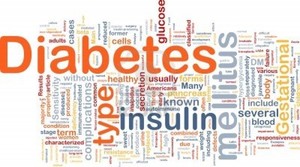US pharma giant Merck announced on 13 June 2016 positive results from two phase III studies evaluating its insulin glargine biosimilar (MK-1293).
Insulin biosimilar meets primary endpoint in phase III studies
Biosimilars/Research
|
Posted 24/06/2016
 0
Post your comment
0
Post your comment

Both studies reported that MK-1293 achieved its primary endpoint with non-inferiority in change from baseline haemoglobin A1C (a measure of average blood glucose) and similar safety to Lantus (insulin glargine) after 24 weeks in patients with type 1 and type 2 diabetes. Furthermore, both studies reported that MK-1293 met its pre-specified secondary efficacy endpoints of statistical A1C equivalence to Lantus, a measure used to show that an investigational treatment is similar, within an acceptable range, to a current therapy.
Type 1 diabetes
This phase III, randomized, active-controlled, open-label trial was carried out in type 1 diabetes patients, of whom half were prescribed MK-1293 (n = 245) and half Lantus (n = 263). The least-squares mean difference in A1C (MK-1293 minus Lantus) was 0.04% (95% CI: -0.11, 0.19), meeting A1C non-inferiority (upper bound of the confidence interval < 0.4%) and equivalence (confidence interval within -0.4% and 0.4%) criteria. Basal insulin doses were similar between groups (MK-1293 minus Lantus; difference of -0.7 U/day; 95% CI: -2.5, 1.0 U/day). No clinically meaningful difference in safety endpoints of interest were seen between treatment groups.
Type 2 diabetes
This phase III, randomized, active-controlled, open-label trial was carried out in type 2 diabetes patients, of whom half were prescribed MK-1293 (n = 265) and half Lantus (n = 266). The least-squares mean difference in A1C (MK-1293 minus Lantus) of 0.03% (95% CI: -0.12, 0.18), meeting A1C non-inferiority (upper bound of the confidence interval < 0.4%) and equivalence (confidence interval within -0.4% and 0.4%) criteria. Basal insulin doses were similar between groups (MK-1293 minus Lantus; difference of 1.4 U/day; 95% CI: -2.2, 4.9 U/day). No clinically meaningful between-group differences were found for predefined safety endpoints of interest.
The biosimilar is being developed as part of an agreement Merck made with Korean electronics giant Samsung’s specialized biologicals unit, Samsung Bioepis back in 2013 [1]. As part of the deal Merck will lead clinical development and manufacturing. If accepted, Merck will also be responsible for commercializing the product, while Samsung Bioepis is partially funding development.
Related article
Merck outlines biosimilars programme
Reference
1. GaBI Online - Generics and Biosimilars Initiative. Merck and Samsung Bioepis collaborate on biosimilar insulin [www.gabionline.net]. Mol, Belgium: Pro Pharma Communications International; [cited 2016 Jun 24]. Available from: www.gabionline.net/Biosimilars/News/Merck-and-Samsung-Bioepis-collaborate-on-biosimilar-insulin
Permission granted to reproduce for personal and non-commercial use only. All other reproduction, copy or reprinting of all or part of any ‘Content’ found on this website is strictly prohibited without the prior consent of the publisher. Contact the publisher to obtain permission before redistributing.
Copyright – Unless otherwise stated all contents of this website are © 2016 Pro Pharma Communications International. All Rights Reserved.
Source: ClinicalTrials.gov
News
FDA approves Poherdy (first interchangeable pertuzumab) and Armlupeg (pegfilgrastim) biosimilars
EMA recommends approval for insulin glargine biosimilar Ondibta and denosumab biosimilar Osqay
General
Samsung Bioepis wins Pyzchiva case; Regeneron patent rulings threaten foreign biosimilars
Chinese biosimilars go global: growth, partnerships, and challenges
What is the future for the US biosimilar interchangeability designation

Biosimilars/Research Posted 05/06/2025
Biosimilar clinical efficacy studies: are they still necessary?

Biosimilars/Research Posted 27/05/2025
The best selling biotechnology drugs of 2008: the next biosimilars targets








Post your comment